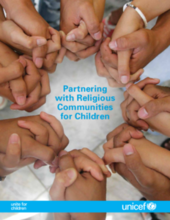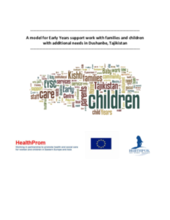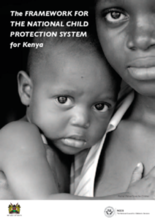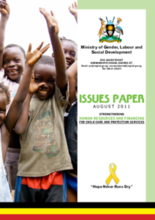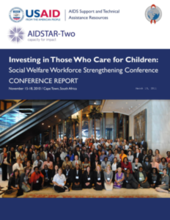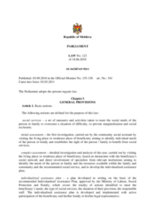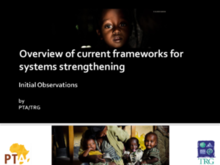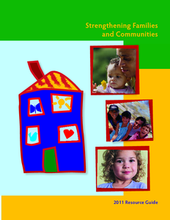Displaying 451 - 460 of 507
The chapters in this book discuss the complexity immediately encountered when approaching the task of improving the lives of Looked After Children (LAC).
Helping families and their kin develop care plans for orphaned and vulnerable children was the objective of the family group conferencing (FGC) training that took place in Guatemala City from July 10-12, 2012. This family preservation approach for developing strategies to prevent the institutionalization of children emphasizes the strengths of families and their capacity to solve their own problems and develop their own care plans.
This document is intended as a guide, primarily for UNICEF staff and partners, to building effective partnerships with larger religious, and local faith, communities and networks, especially religious leaders.
This report is the result 4 of a two-year EU funded project “An Early Years Support Centre (EYSC) service in Dushanbe: Reducing poverty, empowering vulnerable families, strengthening partnerships and advocating for rights”. It outlines the model of support that was developed through the EYSC project in Dushanbe, the capital of Tajikistan.
This document contains the national framework for the child protection system in Kenya, developed with the intention of improving linkages between different sectors for more a more coordinated approach to protecting children.
This paper highlights human resource and funding gaps that constrain provision of child care and protection services. It advocates for strengthening of social welfare workforce and funding to improve child care and protection services in Uganda.
This Conference explored a range of workforce development strategies, including strategies for planning, training, and supporting the workforce incorporating lessons learned from Health Systems Strengthening and Human Resources for Health Initiatives as well as other human and institutional capacity building and training efforts.
Republic of Moldova, Parliament, Law No. 123 on Social Services entered into force 3 March 2011.
This presentation provides an overview of approaches and frameworks utilized to strengthen child protection systems in Africa.
Resource guide developed to support service providers in their work with parents, caregivers, and children to prevent child abuse and neglect


